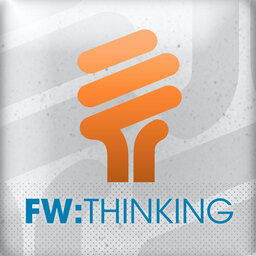Google Goes Magenta
Can a computer create art from scratch? How will Google's Magenta project actually work? And can a machine be truly creative?
Learn more about your ad-choices at https://www.iheartpodcastnetwork.com
In 1 playlist(s)
Fw:Thinking
It's about technology. It's about humanity. It's about our future. It's Fw:Thinking.Social links
Follow podcast
Recent clips

It's So Hard To Say Goodbye
53:52

Looking Back on the Future Part Two
38:16

Looking Back on the Future Part One
53:00
 Fw:Thinking
Fw:Thinking